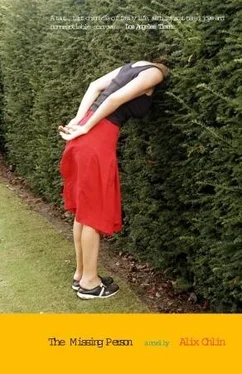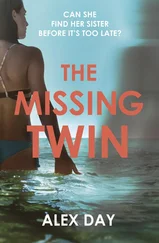“I’m a total klutz,” he said apologetically. “I’ll be just a sec with your water.”
I could hear a woman moaning down the hall, in a bedroom that, in our house, had belonged to Wylie. The door was open, and while Donny took care of the dustbin I walked inside.
Although I couldn’t summon any specific memory of her from childhood, I knew it was Daphne Michaelson. She was sitting in an armchair reading Vogue, moaning softly to herself as she turned the pages. Her finger- and toenails were painted a brilliant shade of red, her brown hair fell in stylish waves to her shoulders, and her pale skin was dusted to an elegant beige. She was wearing a pink dress and brown slingback pumps, and she looked like a million dollars.
“Oh, excuse me,” I said. She crossed her legs and smiled at me, stopping her moaning, and wagged her right foot up and down in its pump. “I used to live next door?”
“I have a permanent wave,” she said, in a not unfriendly tone, but then turned back to the magazine.
Except for the armchair, the room was mostly bare of furniture. Lining one wall, floor to ceiling, were wooden bookshelves that looked homemade, filled completely with hundreds upon hundreds of Vogue magazines, their thick white spines neatly tapped into place.
“Do you remember me?” I said. “My brother, Wylie, and I used to live next door. With our parents. Arthur and Marie Fleming.”
The names, even my mother’s, provoked zero reaction from David’s wife. She flipped a slick page with her index finger and shook her head. “They told me not to get a permanent wave,” she said, “but where hair’s concerned I know what I’m doing. I’ve been a student of hair since I was eleven years old.”
Feeling hot breath on the back of my neck, I jumped. Donny was standing behind me, holding a glass of ice water, his cheeks flushed. He jerked his head sideways, to indicate that I should leave the room, and fast, then closed the door after me. Following him back through the house to the backyard, I tried to remember what his mother was like when we were young, but couldn’t come up with a single thing. For all I knew, she could’ve been in that room reading Vogue the entire time; she’d clearly had the subscription long enough, anyway.
Donny handed me my glass of water and we sat at the picnic table, feet scraping the dirt, while I drank in silence.
“So, Lynnie,” he said. “What are you doing tonight?”
“What?”
“Me and my friends are going to catch a movie, probably, if you wanted to come along.”
I stood up. “Oh, jeez. I promised my mom I’d have dinner with her. Thanks for the water, though.”
“Okay, maybe another time then. Hey, do you like miniature golf?”
“I really should get going, Donny.”
He accompanied me around front to the Caprice, opening and closing the door in a gentlemanly fashion, and waved as I pulled away.
I turned the radio up high and took the highway to my mother’s, driving extra-fast. I couldn’t stop thinking about Daphne Michaelson flipping through Vogue and checking out runway fashions from a world she, so far as I could tell, had never encountered. And what on earth did she do during the school year, with both sons away, one for months on end, and her husband at work all day and then — a thought that tasted bad in my mouth — at some other woman’s condo? Her plight seemed to me terrible. Then, from some distant part of my brain, I managed to retrieve a childhood memory: a backyard party at our house one summer night, a flock of people from the neighborhood, adults with cocktail glasses, kids with sparklers and hamburgers. The two Michaelson boys, toddlers, exhibiting athletic prowess even then, leaping over each other gymnastically, landing on their heads and bounding back up. My mother inside in the kitchen, talking with the other wives. My father at the grill, spatula in hand, frowning at the browning pieces of meat. And Daphne Michaelson by herself in the yard, quiet, exquisitely made up, swaying slightly in a flowered dress.
My mother and I got home at around the same time. Before she could say anything, I proposed that we have dinner together, “unless you have other plans,” and she smiled awkwardly and said that sounded fine. I offered to make something, with the caveat that my cuisine extended only to items unwrapped and placed in the microwave. She smiled and said she’d be happy to cook. There was a kind of elaborate diplomacy between us. Actually, I thought, we could have used some form of simultaneous translation to help us communicate, as if we were foreign dignitaries.
“Lynn, could you set the table?” Since you’ve accomplished nothing else useful this summer.
“Sure, Mom.” That’s not fair. I did bring Wylie home, and you made a mess of that.
“Do you like Italian dressing?” At this point I don’t even know what you like, or even, frankly, care.
“Anything’s fine with me.” The feeling’s mutual.
I asked how her day was, and the trials and tribulations of travel-agency life kept us going through most of dinner. A couple who wanted to vacation on cruise ships presented her with a budget of five hundred dollars; another family required a money-back guarantee they wouldn’t come down with food poisoning on a trip to Machu Picchu. Adventure without risk, luxury at economy cost, entertainment without the stress of activities, structure without schedules, and, always, free cocktails: these were the standard demands. Over coffee she asked how my research was going. When I said I’d hit upon an interesting topic for my dissertation, she frowned and said she thought that was already well under way. Probably I’d told her so myself. I explained that this impression was widespread but false.
“It’s those paintings from the old house,” I said. “The ones by Eva Kent? I’m going to incorporate them into my work.”
She looked blank.
“On modernist values in feminist painters of the later twentieth century.”
Now she looked blank but impressed.
“I have a strong feeling about those paintings,” I went on.
“Goodness, those things,” my mother said.
“I’ve been wondering where Dad found them,” I said.
“I told you, I thought probably his secretary. You remember her, don’t you, Mrs. Davidoff? She had terrible bunions. She always asked after you children.”
“I can’t really picture Mrs. Davidoff buying those paintings.”
“Well, maybe not. She was a little severe. Of course I think her feet were giving her an enormous amount of pain. She had surgery eventually, a bunionectomy.”
This gave me pause. “That can’t be a real operation.”
My mother looked offended. “Of course it is.”
“Never mind,” I said. “So do you think Dad could’ve bought them at a gallery? Or did he know any artists?”
“Your father didn’t know anybody except the people he worked with, and us,” she said. “You know that. He didn’t have what you’d call a wide social circle.”
“So where did he get them?”
“Well, sometimes they have those kiosks at the mall,” she suggested.
I tried to picture Eva peddling her strange nudes outside a food court, and my father interrupting his shopping to speak with her, holding the painting by its frame and nodding his head in appreciation of the couple in Desert I: The Wilderness Kiss. Neither part of this was imaginable. When I was in middle school he almost always came home late from work, and would heat up his dinner in the microwave as I sat at the table and told him about my day. He’d eat straight out of the container, apparently indifferent to what it was, and I often thought I could’ve covered cardboard or mud patties or Styrofoam packing peanuts with tomato sauce and he wouldn’t have noticed.
Читать дальше












